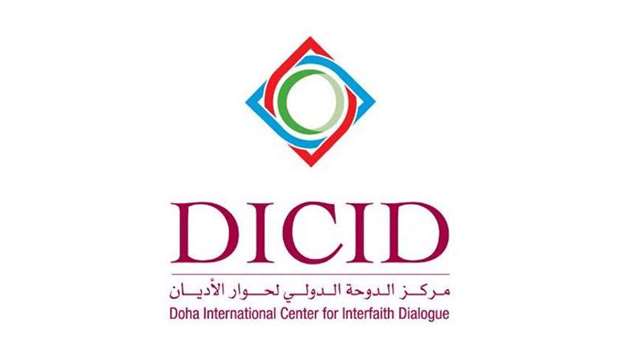Doha International Centre for Interfaith Dialogue (DICID) held a round-table discussion on the repercussions of the blockade crisis and the prevention of Qatari citizens and residents from Haj and Umrah.
The participants, from related entities in Qatar, discussed the sanctity of Haj and the status of holy places for all Muslims, the pilgrimage between religious law and politicisation, and the obstacles that Saudi Arabia places to the citizens and residents who wish to perform Haj.
HE the DICID's Chairman Dr Ibrahim Saleh al-Nuaimi stressed the importance of convening this meeting, pointing out that it coincided with the Ministerial Meeting to Advance Religious Freedom which held in Washington in the presence of many political and religious leaders and civil society organisations from around the world, in order to ensure respect for freedom of religion and belief.
He also noted that the meeting came as the Haj season is approaching and the need is urgent to show how important this religious rite is to Muslims, while the Saudi authorities continue placing obstacles on Qatari citizens and residents wishing to perform Haj.
For her part, DICID's Vice-President Dr Aisha al-Mannai explained the importance of Haj to Muslims and the need for every Muslim to perform Haj and Umrah freely and safely, adding that the holy places do not belong to the Saudi state alone, but all Muslims have the right to access to them and practise their rituals.
Director of the Consular Affairs Department at the Ministry of Foreign Affairs Mohamed al-Subaie referred to the violations suffered by the Qatari pilgrims when the blockade was imposed by the Saudi authorities, stressing that the Qatari officials did not deal in the same way with the residents of the blockading countries.
Al-Subaie said that Saudi Arabia's attempt to show that it is not committing violations and seeks to facilitate Haj and Umrah for Qatari citizens and residents is futile, stressing that this attempt has not convinced the international community, which clearly sees these violations and obstacles.
He also stressed that all Saudi authorities' practices clearly indicate their politicisation of the pilgrimage.
Meanwhile, the head of the registration and follow-up department at the Ministry of Awqaf and Islamic Affairs Ibrahim Mohamed al-Nemaa spoke about the prevention of Qataris from performing the Haj rituals for the third year, saying that despite the attempts of many Haj and Umrah agencies to overcome this prohibition, they failed due to Saudi authorities' intransigence and insistence on their position, as well as their blocking of Haj registration website.
In his speech during the round-table discussion, spokesman for the Haj and Umrah agencies of Qatar Yousef Ahmed al-Kuwari said that the Saudi authorities did not respond to any contact or requests from the Qatari pilgrimage agencies, although they claim that they do not prevent Qataris from performing Haj and Umrah, pointing out that the authorities there are the one who require those who wish to perform Haj to follow an official regulatory mission in their countries.
The Qatari Haj affairs committee is responsible for co-ordinating Haj and Umrah trips and obtaining visas, required approvals and permits and facilitating all services for pilgrims, and without all of these measures, Haj is impossible, al-Kuwari said.
He also referred to Haj campaigns' attempts to find ways to overcome these obstacles and find solutions to them, allowing people to submit their requests for Haj and Umrah through pilgrimage campaigns in other countries, specifically Kuwait, but he pointed out that pilgrims who have Qatari residencies were sent back to Qatar and forced to return without performing Haj.
Al-Kuwari underlined that the Qatari citizen is being exploited politically in the issue of Haj, adding that if a Qatari citizen can go for Haj individually and overcome all the obstacles, this is taped by Saudi media as a proof that it does not prevent the pilgrims.
Director of the Department of Legal Affairs at the National Human Rights Committee (NHRC) Abdullah al-Kaabi said that the Saudi authorities' statements that the Qatari authorities are preventing their citizens from performing Haj and Umrah no longer mislead the international community on freedom of religion, belief and human rights, pointing out that many complaints had been submitted to the Committee, which in turn had submitted a formal complaint with the Office of the United Nations High Commissioner for Human Rights and the Special Rapporteur on freedom of religion and belief and asked him to send a mission to see the obstacles actually being placed by the Saudi authorities.
He also added that a report submitted by Qatar to the International Court of Justice was issued, in addition to the complaints before the European Parliament in the same matter in which the Committee presented a complete file of these violations.
At the end of the round-table discussion, all the attendees expressed their concern about the clear politicisation of religion by the Saudi authorities and their unfair use of Haj, which is an important duty and cornerstone of Islamic law, to restrict citizens and residents of Qatar.
The participants sent a message to the international community that the suffering of the Qatari pilgrims and residents should be clarified because they were prevented from performing Haj for the third year in a row, and presented this clearly to the world public opinion.
They also sent an urgent message to the participants in the ministerial meeting in Washington, demanding them to call for respect and defence of religious freedoms and beliefs.

